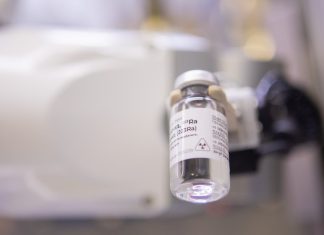Researchers at the Moscow Institute of Physics and Technology (MIPT) Laboratory of Experimental and Cellular Medicine have created a groundbreaking method for detecting potentially cardio toxic substances during the preclinical phase, known as i-CARDIO. The danger of drugs for the heart is checked in four stages.
First, scientists isolate stem cells from blood samples and “transform” them into cardiomyocytes – heart muscle cells.Subsequently, they introduce the substance under investigation into their culture, stimulate the cardiomyocytes with electrical impulses, and monitor the alterations in cellular vitality and ion channel function through advanced optical mapping technology.
“Having received a sufficient experimental base, we developed the method using computer vision and neural networks to predict conduction in cardiac tissue under the influence of the substance being studied,” said MIPT junior researcher Sandara Kovalenko.
Neural networks process the received data and provide information on how much a particular drug contributes to the mass death of cardiomyocytes, as well as whether it leads to the development of various forms of arrhythmia and failures in the functioning of the atria and ventricles. Several drugs have already passed cardiotoxicity testing, including the antitumor drug cyclophosphamide, the antibiotic erythromycin, and a mixture of botulinum toxin and novochitosol, which doctors are now considering as a candidate for the role of a drug for the treatment of postoperative arrhythmias.




